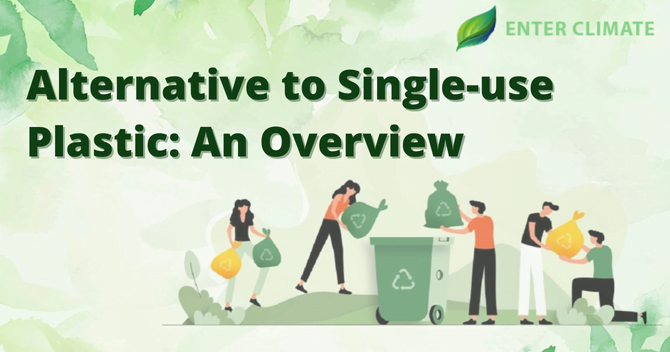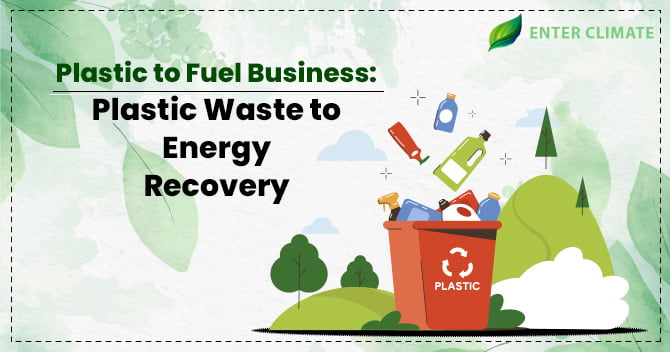Post Compliance for Plastic Bag Recycling Business
 18 Oct, 2022
18 Oct, 2022 
Before understanding the post compliance for the plastic bag recycling business, it sounds wise to know some basics. Section 3(c) of the Plastic Waste (Management) Rules, 2016 defines plastic bags as “bags made from plastic or compostable plastic material. They are used to carry or dispense commodities which have a self-carrying feature but do not include bags that constitute or an integral part of the packaging in which goods are sealed before use.” Plastic waste, however, is described as “any plastic discarded after use or after the intended use is over.”
Around 500 billion plastic bags are consumed annually, with an estimated one million bags every minute. It is also estimated that the average annual plastic consumption is 11 kg per individual. Even though they can be recycled, most of these plastic bags are discarded after only one use, adding to the enormous amount of waste that has already been gathered. Only 9% of plastic is now recyclable. The remaining is either burned, producing harmful vapour that is hazardous to human and environmental health or thrown into landfills. This highlights the dire need for the Plastic Bag Recycling Business.
According to sections 3, 6, and 25 of the Environment (Protection) Act of 1986, legislation governing plastic trash, known as the Plastic Waste (Management) Rules, 2016, was put into place to address the growing concern surrounding single-use plastic bags.
With a (Compound Annual Growth Rate) CAGR of 6.6 per cent, the plastic recycling market was predicted to expand to a value of 41.73 billion dollars in 2018. The recently established plastic industry is anticipated to generate a 20 to 60 per cent profit.
Registration for Plastic Bag Recycling Business
Central Pollution Control Board (CPCB) and the Ministry of Environment, Forest and Climate Change (MoED&CC) mandate all recyclers involved in the Plastic Bag Recycling Business to get registered with the State Pollution Control Board (SPCB) or Pollution Control Committee (PCC) before the setting up the production mechanism. The guidelines mandate the following –
- All recyclers working in the Plastic Bag Recycling Business must fill out form II for a grant of registration from the SPCB or PCC.
- Before registering, the recyclers must obtain a consent certificate under the Water and the Air Acts and the authorisation issued by District Industries Centre (DIC)[1] or any other authorised agency.
- After the application is finalised and evaluated by the SPCB or PCC as per the guidelines, inquiries are made. Upon satisfaction, the registration for the plastic Bag Recycling Business is granted. Whether to grant the registration should not take more than 90 days.
- Initially, the registration will be valid for one year, extending to three years later.
Documents and certificates required to set up the Plastic Bag Recycling Business
- MSME (Ministry of Micro, Small, and Medium Enterprises)Registration
- FSSAI certificate
- NOC by SPCB
- Factory license or Company Incorporation Certificate
- GST registration
- PAN card of the recycler
- Electricity bill of the Plastic Bag Recycling Business
- Aadhaar card of the recycler
- Layout plan, including the area measurements
Post-Compliance for Plastic Bag Recycling Business
The post compliance to be adhered to by the recyclers mentioned as a part of Extended Producer Responsibility is categorised into the following two parts: –
- Plastic Waste Management Rules, 2016 stipulate that the recyclers must submit their annual report regarding the status of Plastic Waste Management for every state and union territory mentioned in the EPR Action Plan. This has to be submitted to the particular SPCB/PCC. The recyclers involved in the Plastic Bag Recycling Business then have to provide documentary proof and supporting papers from the processing facility. This annual report must be submitted within 15 days of the relevant half-year end.
- Apart from the annual report, according to PWM, 2016, the recyclers involved in the Plastic Bag Recycling Business must submit their sales information to the SPCB/PCC.
Documents required for annual reports under Plastic Waste (Management) Rules, 2016 for Plastic Bag Recycling Business
Recyclers, to obtain annual reports by filling up Form IV according to Rule 17(1) of the PWM, 2016, must submit the following documents: –
- Quantity of the plastic waste received during the year being reported upon along with the source
- Details of landfill facility to which discarded materials were sent for final disposal
- Quantity (in tons) of plastic waste recycled or processed
- Quantity of inert or reject sent for final disposal to landfill sites
- Documents indicating the status of compliance with environmental conditions
The process of filing the annual report
As per PWM Rules, 2016, the recyclers involved in the Plastic Bag Recycling Business must submit their annual report related to the progress of Plastic Waste Management for every state and union territory mentioned in the EPR Action Plan. The report has to be submitted to the particular SPCB/PCC. The procedure involves submitting the annual report, reviewing it, and creating a consolidated report submitted by the authority.
- For filing an annual report, the recyclers involved in the Plastic Bag Recycling Business must complete Form IV under rule 17(1) of the PWM Rules. Further, as per the stipulated guidelines, The Producer Responsibility Organisation (PRO) can also assist the producers in filing the annual report. The annual report includes details on the technologies used to manage plastic waste, the size of the establishment and so on.
- Once the annual report is completed by the producers with the assistance of the Producer Responsibility Organisation, it is submitted to the State Pollution Control Board/Pollution Control Committee.
- After the annual report is completed, the SPCB makes its annual report as per section 17 of the Plastic Waste Management Rules based on the annual reports submitted in form VI. Depending on this report, the Central Pollution Control Board (CPCB) will make its annual report before the 31st of August.
Conclusion
On top of being very lucrative for market development, the plastic bag recycling business has also proven to be very environmentally sustainable. But to ensure that the graph of such a business is maintained, authorities need to check the process and status of the business from time to time. But this is only possible when an annual report by recyclers is submitted within the stipulated time as a part of their post-compliance obligations.
Read our Article: Requirements for PET Bottle Manufacturing Business












